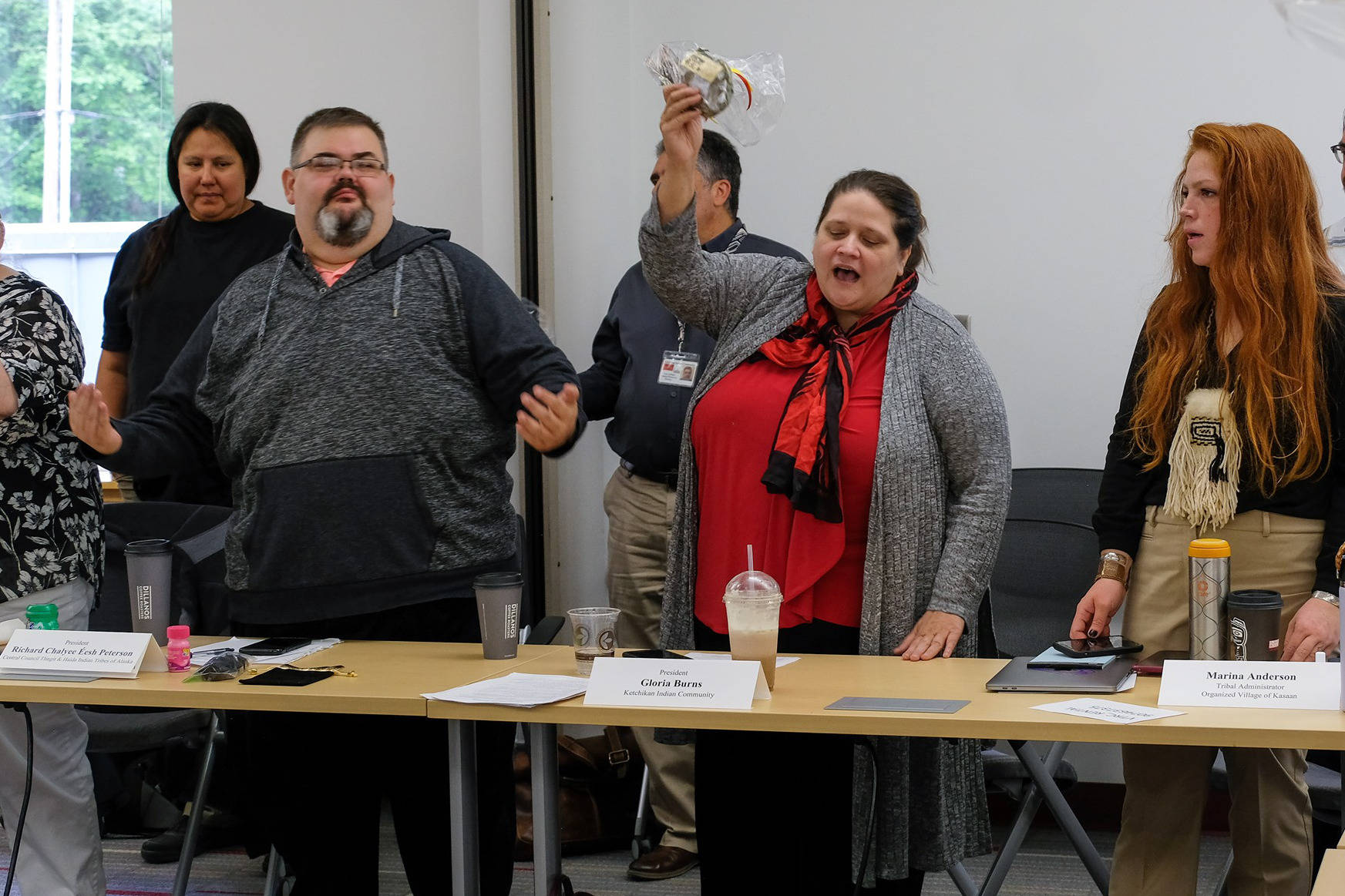Members of federally recognized tribal governments from across the Southeast met with representatives from the U.S. Department of Agriculture and U.S. Forest Service last week, including a Zoom meeting with the secretary of the USDA.
The Roadless Rule, rolled back under the former administration, has been a hot-button issue for communities in Southeast Alaska as they seek to protect large areas of the Tongass National Forest from logging and road construction.
“The Secretary of Agriculture came on the introduction and apologized for how it was handled previously. Now that he’s there, [he said] he wants to make amends,” said Lawrence Armour, tribal administrator with the Klawock Cooperative Administration, who took part in the meeting, in a phone interview. “They were extremely respectful and accommodating. I’m cautiously optimistic because it’s just the first consult.”
[Conditions unchanged for ex-chiropractor charged with sexual assaults]
The previous administration largely failed to listen to public comment or urging from tribal governments not to rollback the 2001 protections that were in place, participants said, when the USDA was headed by Sonny Perdue. Tom Vilsack, the current secretary of agriculture, also served in that position for the full length of the Obama administration.
“I appreciate them coming and talking with us and meeting in person, which has been a long time coming. Dealing with these agencies has never been easy,” said Joel Jackson, president of the Organized Village of Kake, in a phone interview. “They come with their agenda under the guise of consultation, and not really coming to mutual agreement about what we’re talking about.”
This initial meeting exists as government personnel work to repeal the rollback of Roadless Rule, Armour said, looking for the quickest way to get those protections back in place. In the eyes of many, it shouldn’t take that long.
“They stated it could take up to 6-8 months. That’s not acceptable, and we let them know that’s not acceptable to us. They said they had to go through the process and take public comment and that upset some people,” Jackson said. “It shouldn’t take all that time in our minds. But they say it has to. To say the least, we weren’t very happy. But that’s the way bureaucracy works.”
Central Council of the Tlingit and Haida Indian Tribes of Alaska President Richard Chalyee Éesh Peterson was among tribal leaders to attend the consult. The organization posted about the meeting on social media, echoing the sentiments voiced by Jackson and Armour: regret for the conduct of the prior administration and a cautious hope for an improved relationship.
“Under the previous Administration, the Department of Agriculture took actions that adversely affected our livelihood and did so without meaningfully engaging in government-to-government tribal consultation,” the post said. “We are hopeful that under this new leadership, the USDA will rectify these critical issues relating to our traditional lands in the Tongass.”
Trust will come slow after many years of inaction or worse from government organizations, Jackson said.
“What we experienced in the past couple of years wasn’t consultation. It was the Forest Service telling us what they were going to do. That’s not consultation, that’s telling us,” Jackson said. “I’ve been a tribal council member for 30 years. It’s hard for me to take anybody’s word — especially the government.”
More consultation is planned for the future as the government looks at options for getting protections put back in place, Armour said.
• Contact reporter Michael S. Lockett at (757) 621-1197 or mlockett@juneauempire.com.

